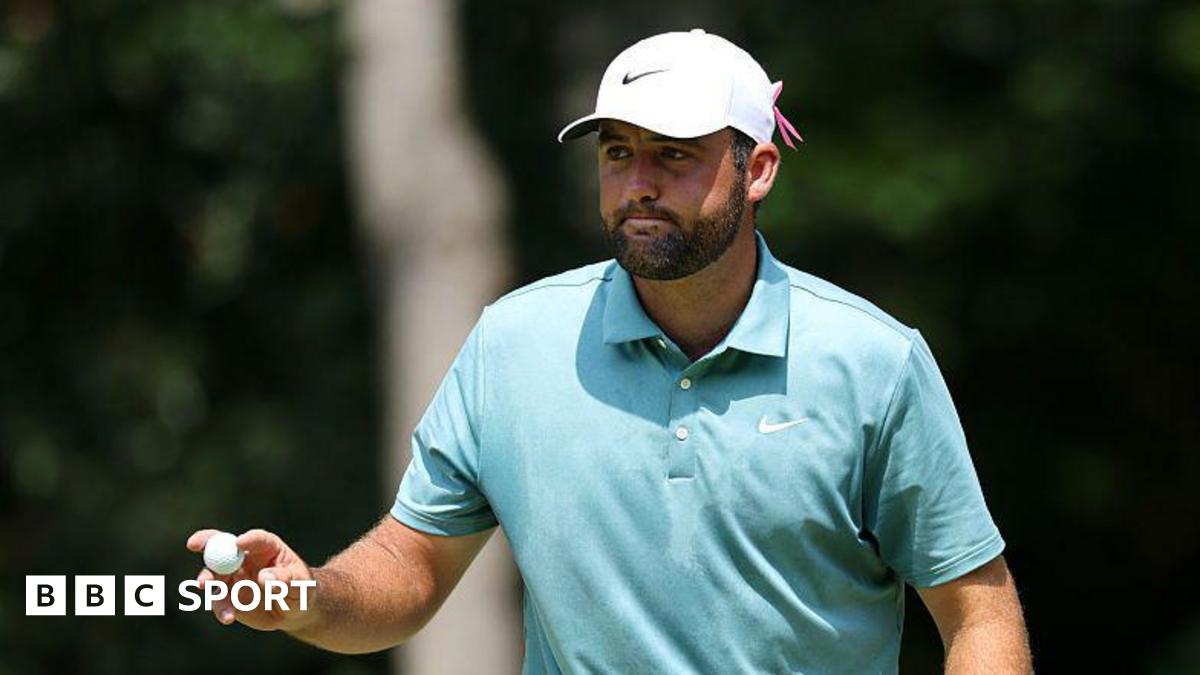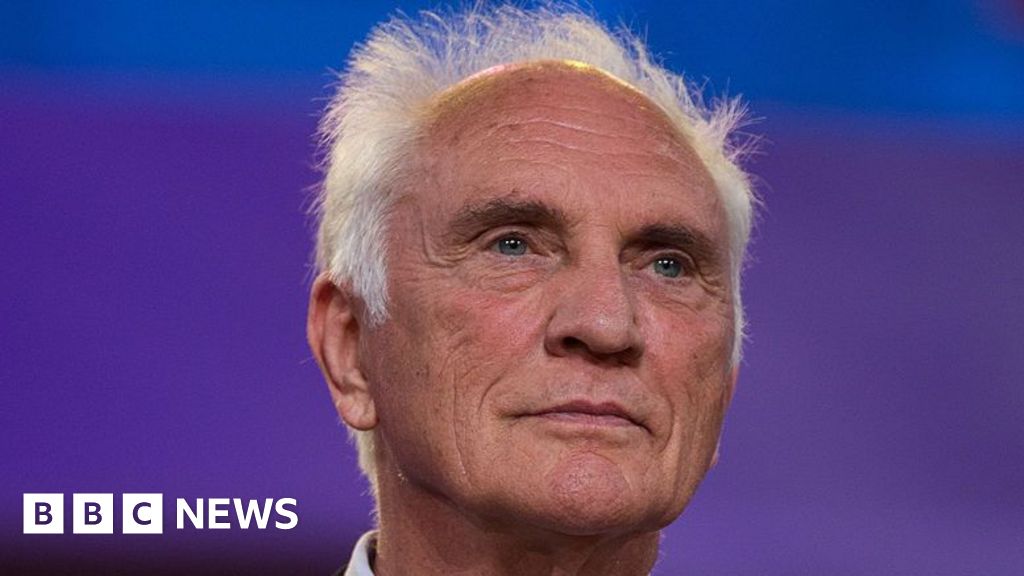Tanya Gupta
BBC News, West Midlands
Josh Sandiford
BBC News, West Midlands

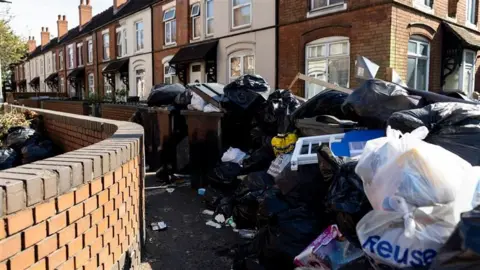 Getty Images
Getty Images
Military planners have been called in to help tackle mounting piles of rubbish in Birmingham following a month-long strike by refuse workers.
Thousands of tonnes of uncollected rubbish line the city's streets due to the all-out strike by Unite union members that began on 11 March. The city council has declared a major incident and asked neighbouring authorities to help tackle the crisis.
Now, after a government appeal to the Army, a small number of office-based planners will provide logistical support for a short time. Soldiers are not being deployed to collect rubbish.
Striking workers will vote on a "partial deal" to end the strike on Monday, Unite has said.
A government spokesperson said: "The government has already provided a number of staff to support the council with logistics and make sure the response on the ground is swift to address the associated public health risks.
"In light of the ongoing public health risk, a small number of office-based military personnel with operational planning expertise have been made available to Birmingham City Council to further support in this area."
The spokesperson added this built on a range of measures on which it had supported the council, including opening household waste centres.
'Help withdrawn'
Last week, it emerged the government had asked other local authorities to help Birmingham City Council clear the backlog of rubbish on the streets.
The Minister of Housing, Communities and Local Government said a number had offered to assist.
Walsall Council was among them, offering support by extending tip opening hours so that Birmingham residents could take their waste there.
However, on Monday, Walsall Council leader Gary Perry said the offer had been withdrawn.
He said: "We, in line we many other local authorities, offered support to Birmingham City Council in the form of access to our HWRCs (household waste recycling centres).
"After a week, there were no signs of this being accepted, so we have taken the decision to take this offer off the table, so we can focus on continuing to deliver services in our borough."
The BBC is approaching Birmingham City Council for comment.

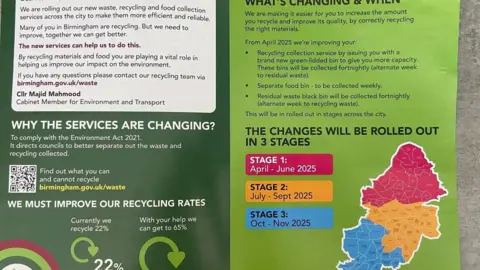
The mid-strike distribution of leaflets about changes to collections has been branded insensitive
The authority is facing criticism, meanwhile, for pressing ahead with plans to switch from weekly to fortnightly collections while the strike remains unresolved.
Leaflets about the change have appeared in residents' letter boxes, but Martin Mullaney, a former councillor for the city's Moseley and Kings Heath ward, said the timing was "politically insensitive".
The leaflets state residents will have a new green recycling bin to be collected fortnightly, a food bin to be collected weekly, and a black bin to be collected fortnightly on alternate weeks to recycling collections.
Mr Mullaney said: "It's just crazy.
"We've got people's rubbish not being collected and now they're getting a leaflet telling them they're going to have extra wheelie bins.
"People will not be very happy. The timing is appalling."

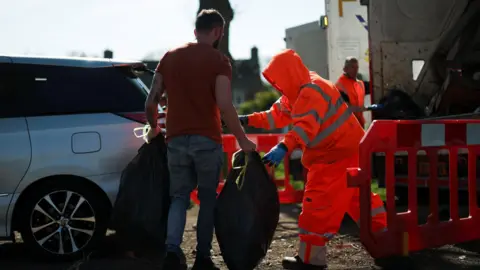 Reuters
Reuters
People have been taking refuse to centres and collection points which have seen long queues
Last week, Deputy Prime Minister Angela Rayner urged striking bin workers to accept a new deal to end the dispute.
She said a "significantly improved" offer had been made and the council had "moved significantly to meet the demands of the workers so we can see an end to this dispute".
However, Unite General Secretary Sharon Graham said the deal represented "a partial deal on pay protection for a few" and the striking bin workers were "in the driving seat around what they wish to accept".
At the end of March, the Labour-run city council declared a major incident, citing an estimated 17,000 tonnes of rubbish across Birmingham over the first four weeks of the strike.


Get our flagship newsletter with all the headlines you need to start the day. Sign up here.
 (1).png)
 4 months ago
39
4 months ago
39

